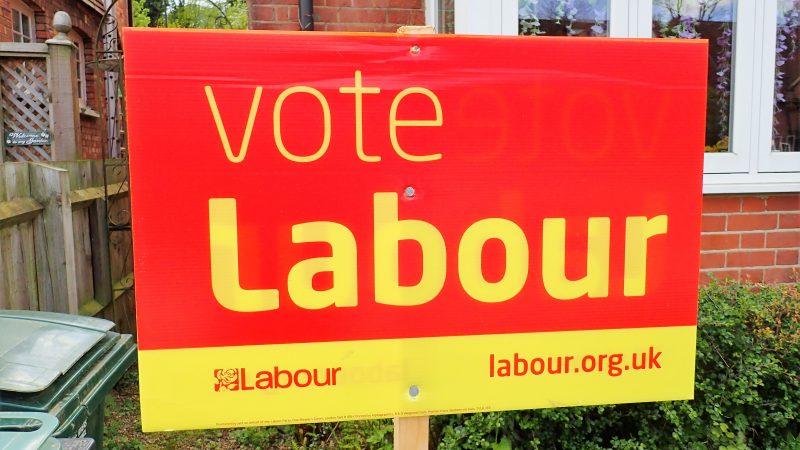
LabourList recently polled readers, who said they are also current members of the Labour Party, on a wide range of topics including the Forde report, Keir Starmer’s leadership, the shadow cabinet and proportional representation.
The survey of more than 1,800 readers was conducted by Survation between August 19th and 23rd 2022. Data were weighted to the profile of party members by age, sex, region and 2020 Labour leadership election vote. Full data tables can be viewed here. Here are the key findings from the poll…
Forde report
Asked about the recently published Forde report – which investigated allegations of bullying, racism and sexism within the Labour Party – more than 51% of respondents told researchers that there are “serious problems” of discrimination in the operations of the party, while 24% said there are not.
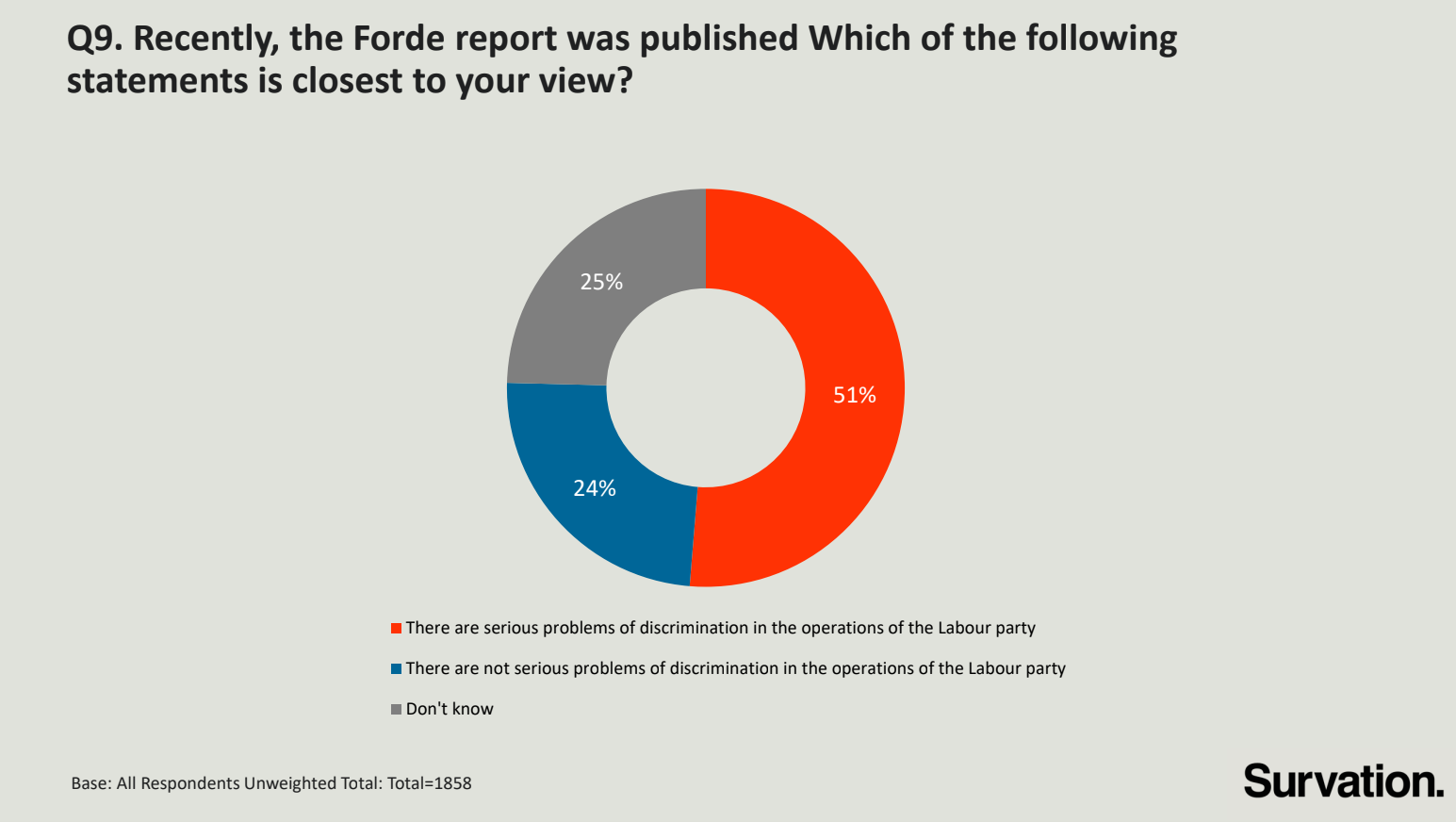
There was a clear split along political lines in this question. Almost 78% of those who backed left-wing candidate Rebecca Long-Bailey for the Labour leadership in 2020 responding that there are serious problems of discrimination within the party compared to less than 37% of those who supported Keir Starmer for leader.
The Forde inquiry, headed by Martin Forde QC, concluded that there are “serious problems of discrimination in the operations of the party” and highlighted the “undoubted overt and underlying racism and sexism apparent in some of the content of the WhatsApp messages between the party’s most senior staff”.
More than 32% of those polled said they had witnessed instances of racism towards other party members. The proportion was higher for respondents based in London, 51% of whom said they had witnessed such an incident.
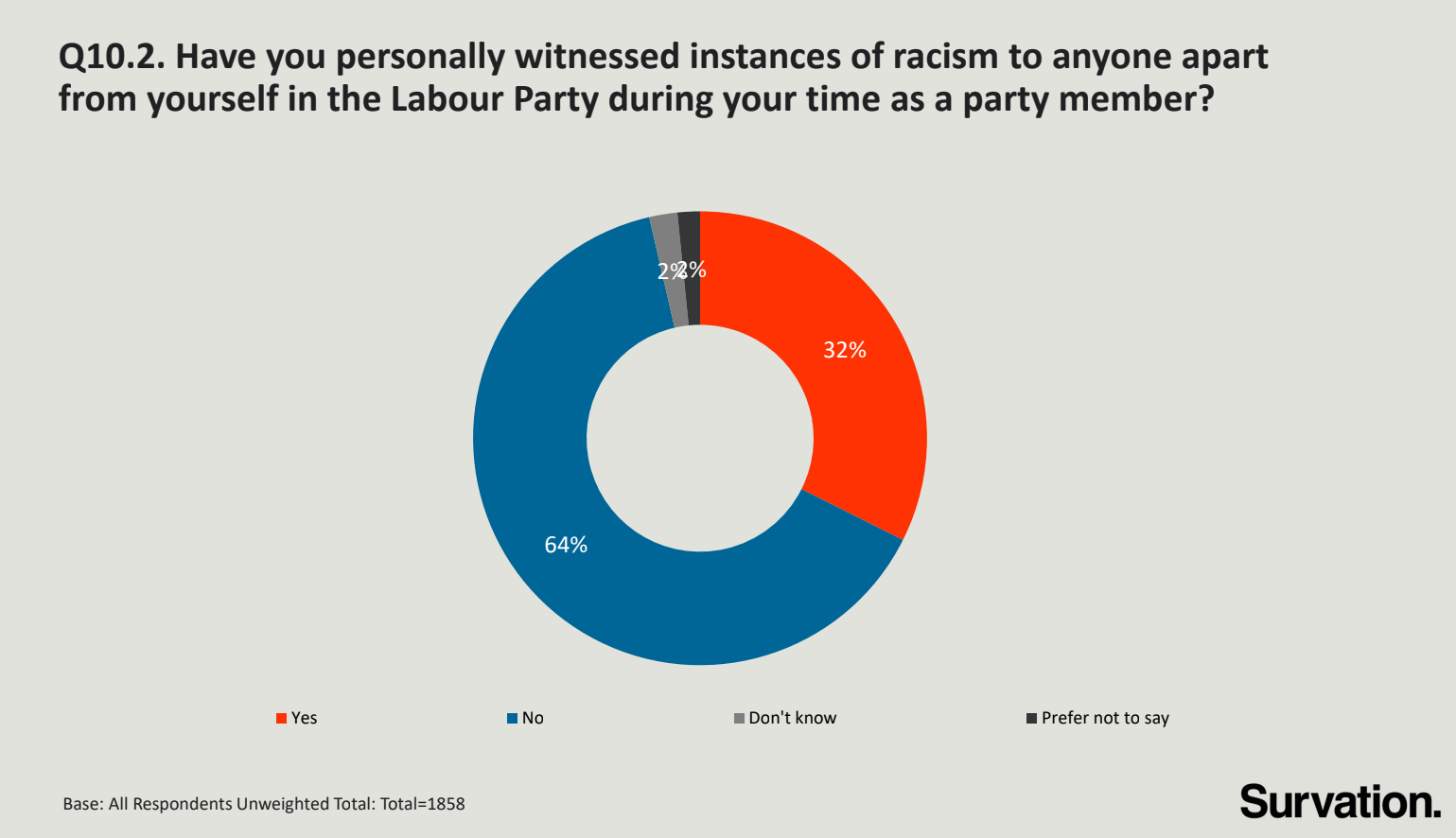
Almost 52% of female respondents said they had personally experienced instances of misogyny within the party. Overall, 45% of those surveyed said they had witnessed instances of misogyny, but there was a notable gender split on this question, with almost 54% of female members reporting that they had witnessed such an incident compared to 39% of men.
Keir Starmer’s leadership
More Labour members think that Keir Starmer is doing a good job as leader than a bad job – but not by much. Overall, 45% of respondents said Starmer is doing a good job with almost 14% responding that he is doing a ‘very good’ job and close to 32% saying he is doing a ‘good’ job. Approximately 15% reported that the Labour leader is doing a ‘bad’ job, while 23% stated that he is doing a ‘very bad’ job, meaning 38% of respondents said they were not happy with Starmer’s performance as leader.
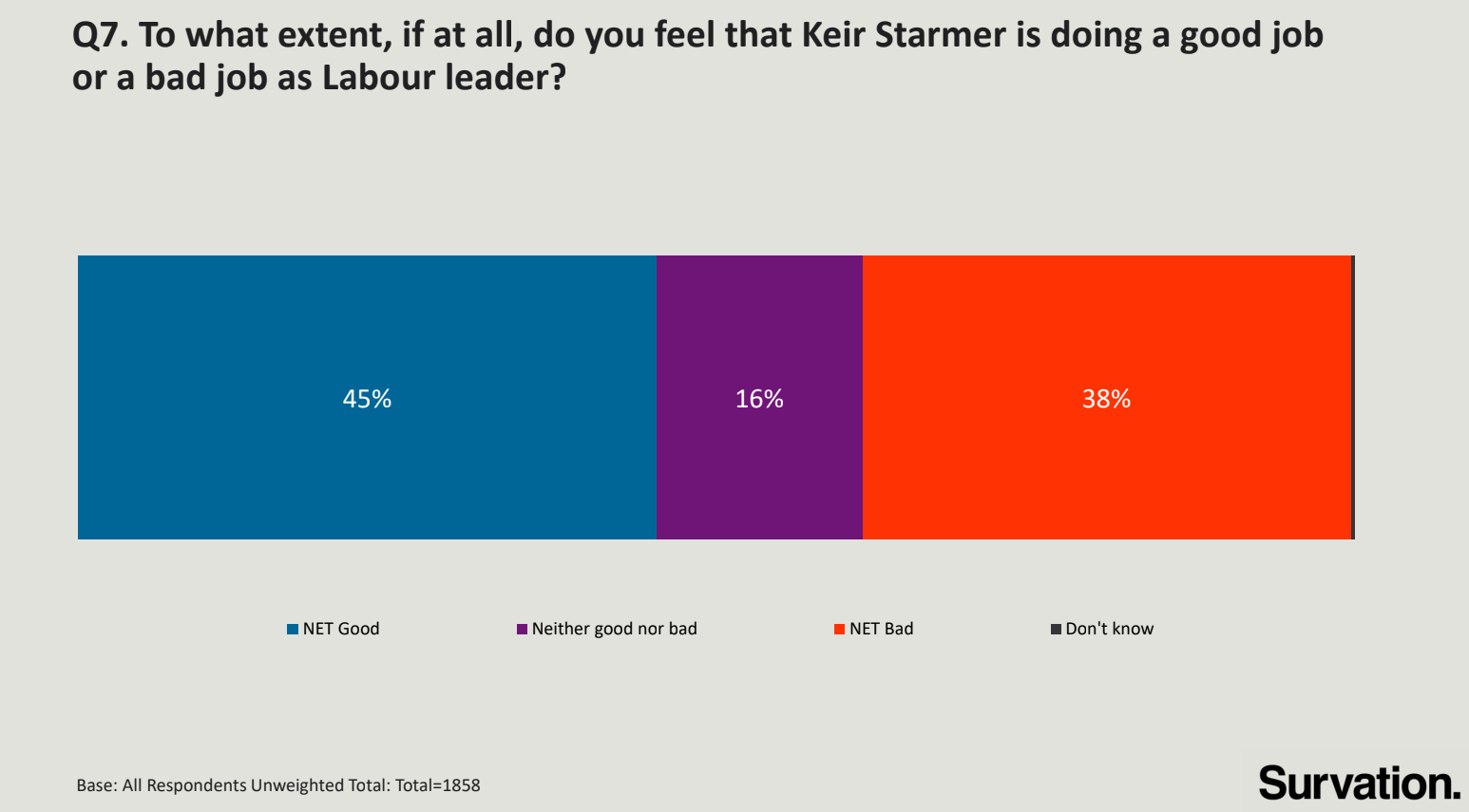
Unsurprisingly, members’ views on Starmer varied according to respondents’ political stances. More than 66% of those who backed Starmer to be Labour leader in 2020 responded that he is doing a good or very good job, while less than 3% of those who supported Long-Bailey said the same. Perhaps more interestingly, fewer than half of the respondents who backed Lisa Nandy for the leadership thought Starmer is doing a good or very good job.
Labour frontbenchers
Respondents were also asked for their thoughts on the performance of a group of Labour frontbenchers including Emily Thornberry, David Lammy, Jess Phillips, Bridget Phillipson, Wes Streeting, Rosena Allin-Khan, Rachel Reeves, Lisa Nandy, Yvette Cooper and Angela Rayner. Asked whether they approved or disapproved of each MP’s performance in their current role, Rayner topped the ranking. 73% of those surveyed saying they strongly or slightly approved of her as deputy leader. Nandy came second on 68% followed closely by Thornberry, the shadow attorney general, with 67%.
The results shifted slightly when only respondents who stated that they are ‘strongly aware’ of each MP were factored in. Phillipson – who had the lowest recognisability among those polled – has the highest approval rating among respondents who are strongly aware of her, with 76% stating they strongly or slightly approved of her performance as Shadow Education Secretary. Allin-Khan, currently serving as shadow minister for mental health, came in second (75%) followed by Rayner (74%).
Given a list of six shadow cabinet members thought to be among the favourites to be the next Labour leader (Wes Streeting, Rosena Allin-Khan, Rachel Reeves, Lisa Nandy, Yvette Cooper and Angela Rayner), 31% of respondents who stated that they were aware of Angela Rayner reported that she would be their first pick for leader if there were a leadership election tomorrow. Almost a quarter of respondents who said they were aware of Lisa Nandy selected her as their first choice, while for Cooper, the figure was 18%.
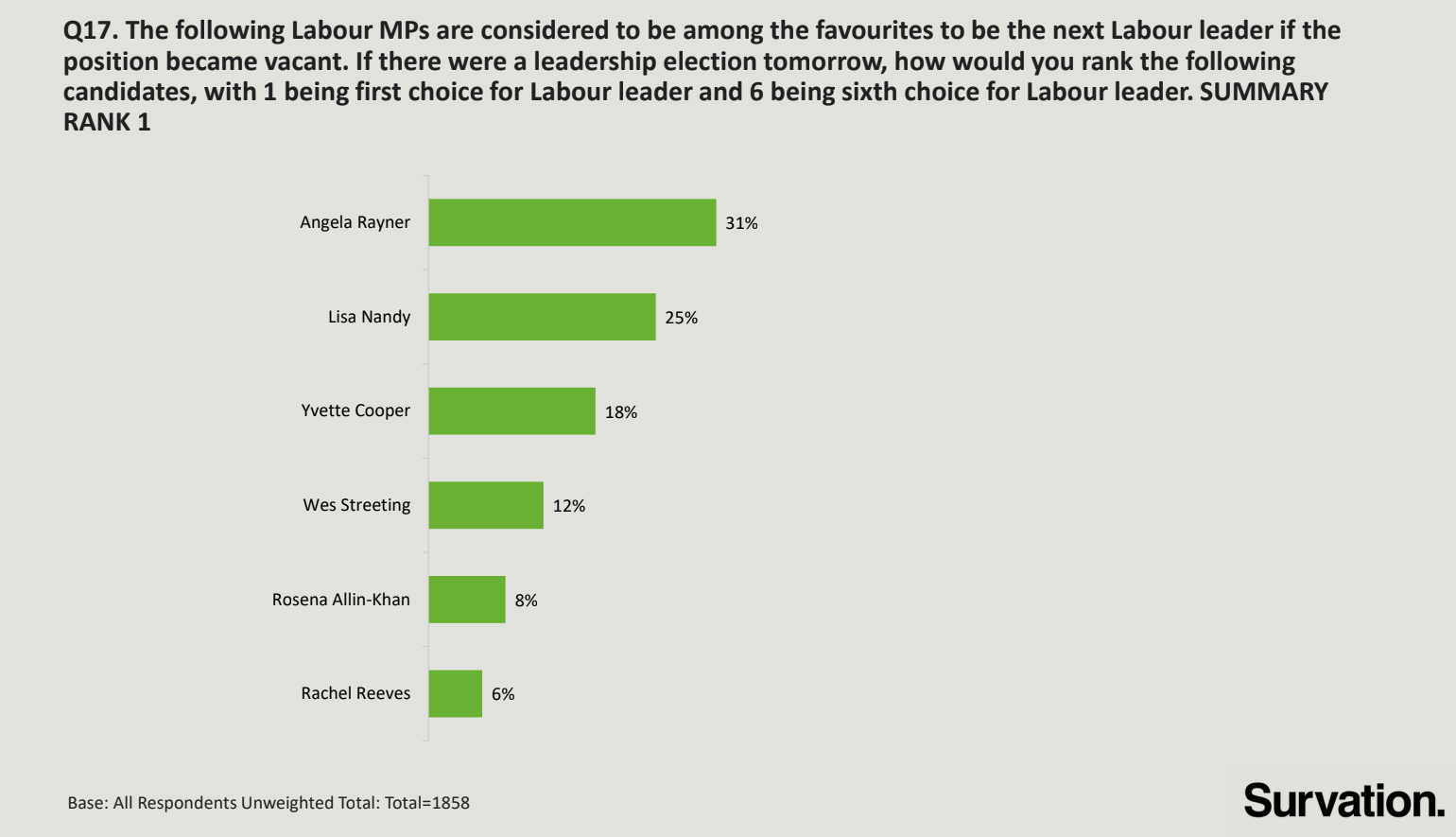
Nandy outperformed Rayner on second preferences, with 26% saying they would select the Shadow Levelling Up Secretary as their second choice, compared to 16% for the deputy Labour leader. Overall, almost 51% of respondents who said they were aware of Nandy placed her as their first or second choice, while 47% said the same about Rayner. Almost 30% of those polled said they could potentially vote for any of the six candidates, though 36% stated that they would definitely not vote for Streeting and 34% said the same about Reeves.
Proportional representation
The proposal that Labour backs the use of a proportional representation (PR) voting system in general elections was strongly supported. More than 70% of respondents said the Labour Party should back a move to PR, compared to 22% opposed.
Support for PR was highest among older members, with 80% of respondents over the age of 65 backing a change in the electoral system, compared to 58% of 25- to 34-year-olds. Interestingly, longer-term party members were less likely to support a move to PR, with only 66% of those who joined the party prior to the 2015 general election supporting the idea, compared to almost 80% of respondents who joined following the 2019 election.
Labour for a New Democracy national coordinator Joe Sousek said the polling “confirms the overwhelming support” for PR, adding: “The message to the leadership could not be clearer: it is time to back these calls for reform and commit Labour to delivering a fair, proportional voting system. It’s an issue that cannot be ignored.”
Open selections
There was notable support for open parliamentary selections, which would see incumbent Labour MPs going through a full selection process against rival candidates in order to be selected as the candidate for the next general election.
A majority (53%) of those surveyed reported that they support the use of open selections to some extent, with 34% stating that they were strongly in favour. Approximately 33% of those polled were slightly or strongly opposed to the idea.
Support for open selections was split clearly along political lines. Almost 87% of members who backed Long-Bailey in the 2020 leadership election supported open selections to some extent, compared to only 38% of Starmer supporters. Overall, those respondents who backed Starmer were opposed to the use of open selections, with almost 46% of his supporters saying they were slightly or strongly opposed.
The Labour Party has been contacted for comment.




More from LabourList
‘Council Tax shouldn’t punish those who have the least or those we owe the most’
Two-thirds of Labour members say government has made too many policy U-turns, poll reveals
‘Two states, one future: five steps on the path to peace for Israelis and Palestinians’